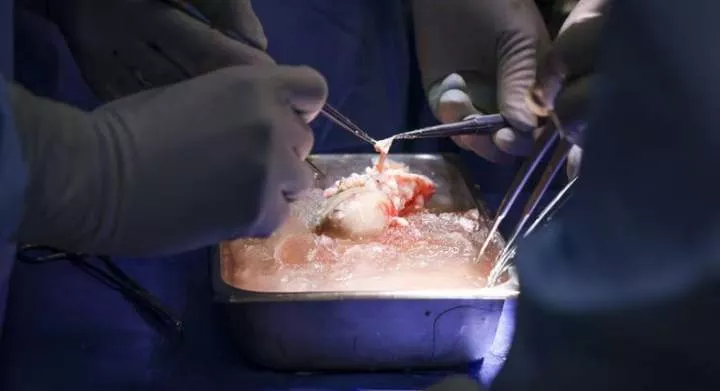![Kidney transplant done with pig's kidney [dailyexpress] Kidney transplant done with pig's kidney [dailyexpress]](https://static.netnaija.com/i/APK4OzeMN0B.webp)
Richard "Rick" Slayman, a 62-year-old man, received the pig kidney transplant and is currently recovering well.
A groundbreaking surgery was performed at Massachusetts General Hospital, where a genetically modified pig kidney was successfully transplanted into a human patient.
The transplant surgeon, Dr. Tatsuo Kawai, expects the kidney to function for at least two years. If it fails, Slayman may need to return to dialysis.
Pigs have been used in heart transplants and with deceased patients, but this is the first time a living human patient has received a pig kidney transplant. The entire surgery took four hours, and doctors are hopeful the kidney will function properly.

This groundbreaking experiment in using animal organs for transplants represents a major step forward in xenotransplantation, a field of medicine that uses animal cells, tissues, or organs to treat human patients.
Previous attempts have been unsuccessful due to the human immune system's inability to accept foreign animal tissue. However, recent attempts have shown promise, especially with the use of genetically modified pigs, which have human-like organs.
As of now, over 100,000 people are on the national waiting list for transplants, with the majority being kidney patients. Thousands of people die annually before they can receive a transplant, which is why this experiment is a significant advancement in the field of medicine.
While pigs have previously been used for skin grafts and heart valve implantation, transplanting entire organs is much more complex. This breakthrough surgery is an amazing innovation that offers hope to many patients who need a transplant.
















Comments